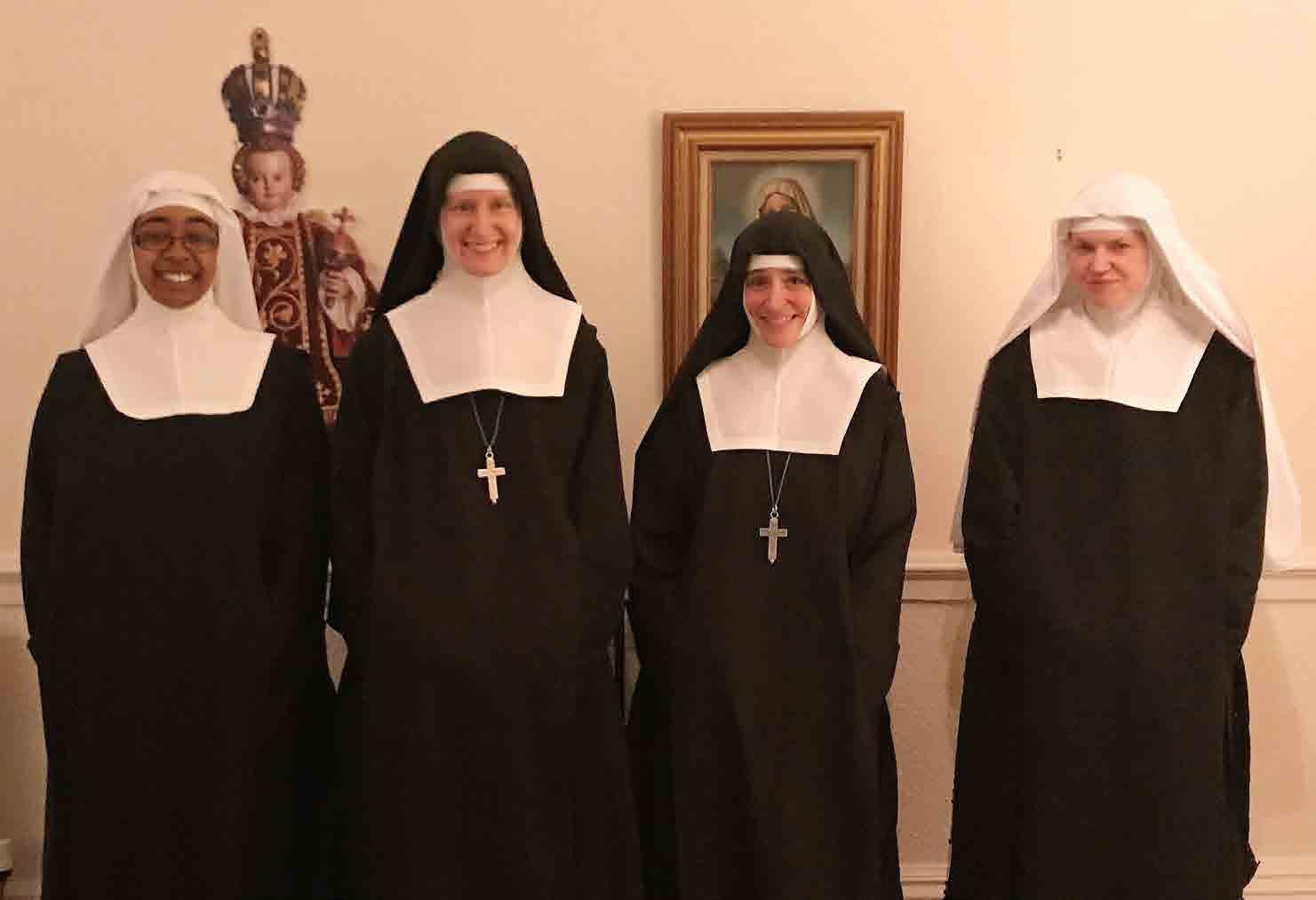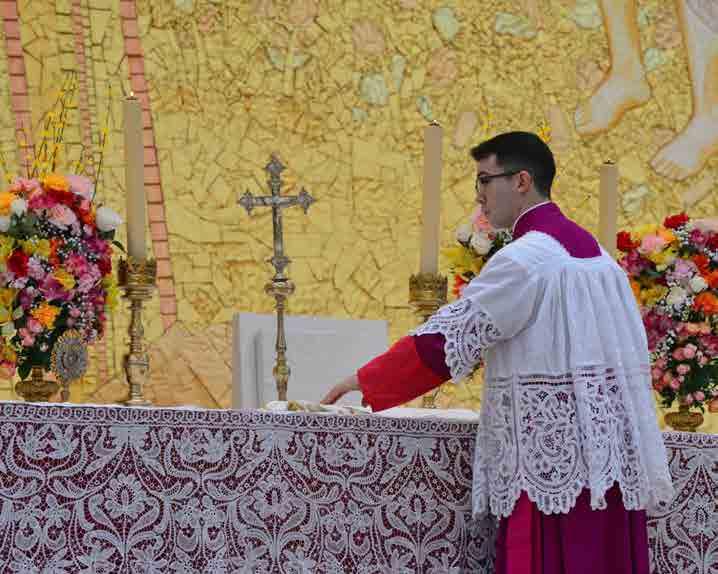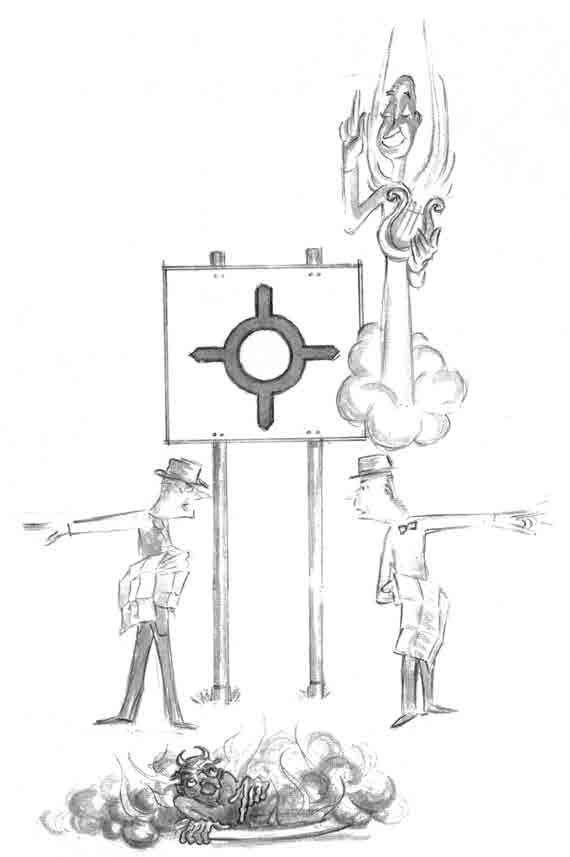FEATURE
Alcuin of York Philip Goddard looks at the life of a remarkable English scholar
U
ntil around 1970 the most important books on the Catholic family’s bookshelf were the Holy Bible and the Roman Missal. For traditionalists they still are. I wonder, though, how many Catholics, traditionalists or not, are aware of how much of the 1962 Roman Missal can be attributed to the work of one man, and an Englishman at that? The precise year of Alcuin’s birth in York is not known, but it must have been around 735, the year in which St Bede died. His talents were recognised at an early age, and in 766 he became Master of the Cathedral School, where he had himself been educated, as well as Librarian of the Cathedral Library. He occupied this position for some fifteen years, until, on a visit to Italy in 781, he met the man in whose service he was to spend the rest of his life, Charles, King of the Franks, who is known to history, flatteringly, as Charlemagne. Charles’ father was Pepin, known to history, somewhat less flatteringly, as Pepin the Short, who in 747 had become sole ruler of the Frankish Empire. When Pepin died in 768, his kingdom was divided between his two sons, Carloman and Charles. Carloman died in 771 and Charles became sole ruler. In 774 he visited Rome, where he received the title “King of the Franks and Lombards and Patrician of the Romans” from the Pope. It was Charlemagne’s great ambition to introduce the benefits of civilisation to the semi-barbarous Frankish court. He was therefore on the lookout for men of learning whom he could conscript into supporting him in this task. He decided immediately that Alcuin was just the right man, and succeeded in persuading him to move to Aachen, his capital, as tutor to the royal family and household. Charles had chosen well. Alcuin not only thoroughly revised the curriculum of the palace school in line with English schools but wrote or rewrote the textbooks himself. However, he was no mere schoolmaster but a deeply learned
44
scholar and, like St Francis after him, a great humanist long before the advent of the Renaissance. He took the same delight as Francis in the physical world in all its aspects, as God’s creation for our use and enjoyment. This emerges strongly in his poetry, of which he wrote a good deal, in the classical metres perfected by the great Roman poets. His themes were the glory of God, the beauty of nature and its transitoriness. His prayer on retiring to bed deserves to be widely known (and used): He lay with quiet heart in the stern asleep: Waking, commanded both the winds and sea. Christ, though this weary body slumber deep Grant that my heart may keep its watch with thee. O Lamb of God that carried all our sin Guard thou my sleep against the enemy. His love of nature and his sorrow at its transitoriness is well illustrated in his lament for his lost nightingale and its sweet voice: What marvel if the cherubim in heaven Continually do praise Him, when to thee, O small and happy, such a grace was given? His poetry can also display a sharp sense of humour. On one occasion he received a note from his friend Samuel, Bishop of Sens, to the effect that he was planning a visit. This was highly inconvenient at the time, since Alcuin’s household was suffering from the effects of a particularly poor harvest. But Alcuin, instead of simply writing a letter asking him not to come, sent him a poem, in which he appealed to the good bishop’s well-known fondness for good living:
So let you stay at Sens, my good bishop, where you still Can keep your men about you and can let them eat their fill: And let no hopes delude you to the sweet fields of the Sauer; Believe me, my lord bishop, you are better where you are. So be mindful of poor Alcuin, you sitting snug and warm, In your own chimney corner – and God bless you, Sam! Charles’ father, Pepin, had been an enthusiastic Romaniser of the liturgy. In 753 Bishop Chrodegang of Metz had visited Rome and had persuaded Pope Stephen II to return with him. Stephen’s visit, during which he anointed Pepin and his two sons, Charles and Carloman, as Kings of the Franks, lasted from 753 to 755. This long papal visit enabled the local clergy to familiarise themselves with the nobility and dignity of the Roman rite, and the beauty of its chant, and thus supplied a powerful incentive towards its adoption. Charles continued his father’s policy. But the universal adoption of the Roman rite was severely hampered by a great shortage of suitable books. In an admonition dated 23 March 789, Charles complains of the poor quality of the existing liturgical books, and urges that the task of copying them be undertaken by older men, exercising the greatest care in their work. At about the same time he requested Pope Adrian I to send him a Roman sacramentary. Adrian sent him one which he described as “immixtum” (i.e. a pure sacramentary of the papal rite, untainted by external elements), known to history as the Hadrianum. But there was a problem with the Hadrianum. It was a purely papal sacramentary; it contained the liturgy only for the stational days, when the Pope was accustomed to celebrate Mass in one of the stational churches of Rome, and for papal feast days. It did not include any Masses for the ordinary Sundays of the year. Charlemagne therefore gave Alcuin the task of supplementing
SPRING 2018

















